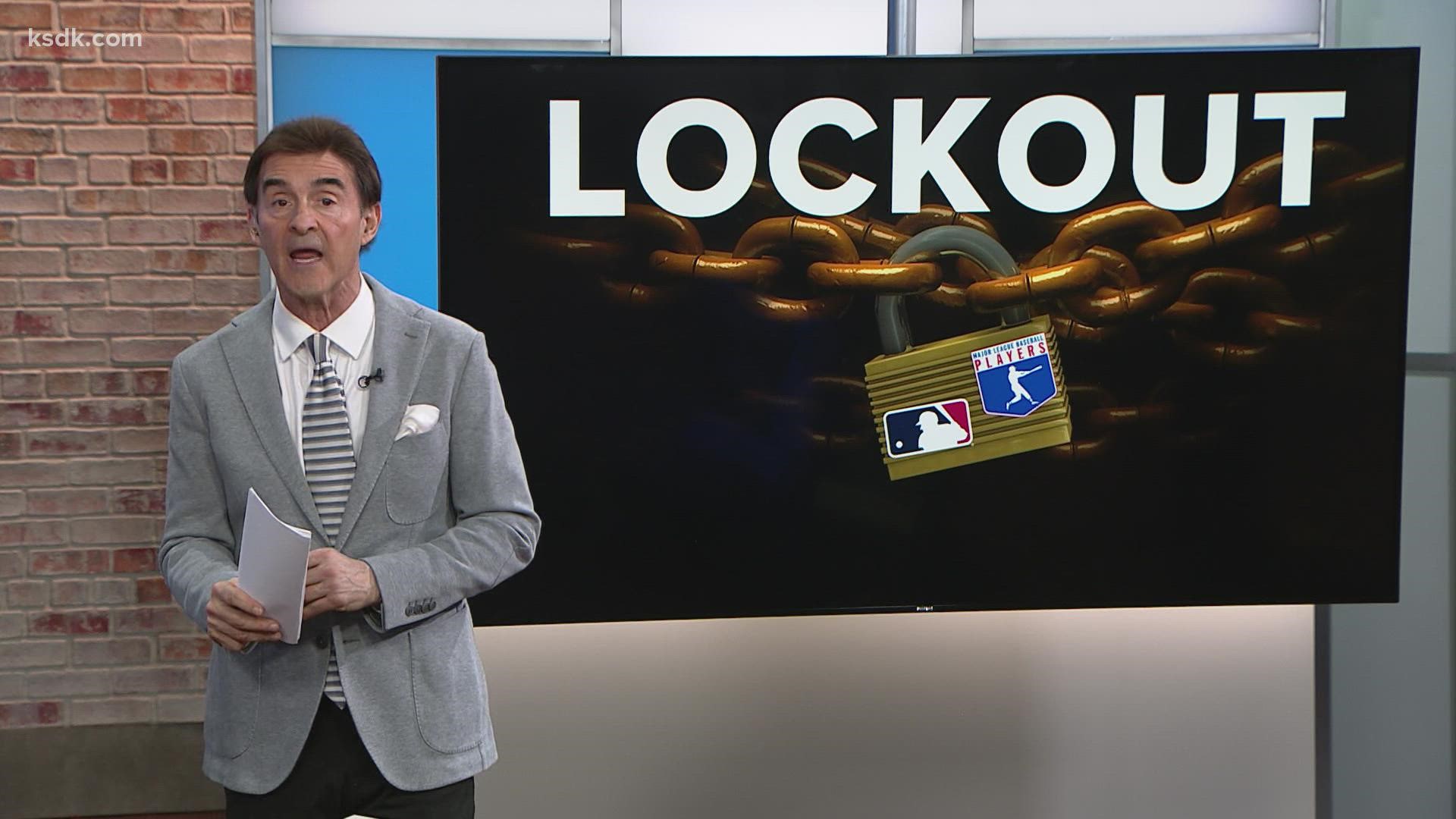ST. LOUIS — It's almost too simple.
Just like the past few Collective Bargaining Agreements, Major League Baseball owners are making the MLB Players' Association bend over backwards in order to get the deal they want. The one that suits them more than the actual players who make their business profitable. This isn't me telling you these facts. I am an opinion guy, a reactor. This comes from seasoned pros like Jeff Passan of ESPN or Joe Sheehan.
Here's what Sheehan, a longtime MLB reporter who writes for his own website now, had to say about the "competitive balance" term that owners often throw around to fool the public:
Instead of raising costs, aka paying players more, or increasing the freedom of said players, owners are happy to just make a lighter dent on their own wallets. While they would like you to think they are looking out for the fans' interest and respecting the needs of the players with this sort of bullish terminology, it's just another way to keep more cash in their own bank account.
It's also important to remember that these teams aren't the end-all, be-all finance option for the owners. They are merely another investment--a place where their money is going along with the other expenditures.
It's not as if Bill DeWitt Jr. is sweating and agonizing over the completion of this new CBA. If it goes on, it won't cripple him. For most players and the hundreds of thousands of stadium workers and neighborhood hotel/restaurant owners, this is their livelihood and a moderate loss of regular season games could cripple them.
Sure, would it hurt them to lose 10-15 games of the regular season and expanded playoffs this year? Yes, but it's not as big of a dent for them as many would suspect. While they continue to move the goalposts-they originally said games would be canceled if a deal wasn't reached by Sunday-it's not a life or death bank matter for them. If it was, the new CBA would be done by now.
Wednesday marks three full months since the lockout began, which shut down all offseason spending and free agency. If the delay reaches far into March, the 2022 regular season will be altered in an ugly way. Imagine that for a second. As the world starts to once again overcome a COVID-19 strain (this time Omicron), baseball is purposefully being postponed due to greed. The 2020 season was truncated due to the outbreak of the pandemic, something that also affected other major sports.
But these days, the NBA, NHL, and NFL are in full swing. The Super Bowl just pulled in viewers of all kinds, the diehards and their more casual-viewing friends. Lebron James and his latest breakfast recipe still spins the dollars and views over at ESPN, and hockey is the only big league discussion in St. Louis. The Blues are well on their way to contending for another Stanley Cup, a place the Cardinals only briefly experienced in a one-game wildcard berth.
If you leave something off the table long enough, people start to forget. It won't leave their mind, only drifting further with each passing week of no deal. When baseball returns, and it will at some point, a good portion of fans will take their time in coming back to the sport. Unlike the NFL, the beginning of even a 140-game season doesn't exactly compel a fan to start paying attention right away. Baseball needs time to marinate its way into the brains of the casual fans who may otherwise be making other plans for the summer.
It's on the owners. Just let Passan tell you.
That last line in the article preview really hits home. "Alienating those who make the sport great." That could be the star players, like Mike Trout and Fernando Tatis Jr., and longtime favorites, such as Adam Wainwright and Yadier Molina. Passan could also be describing the fans and their position as the mass of enthusiasts who burrow their way into a ballpark every hot summer to see their favorites play a game.
Here's how that goes down. After getting home from their day job, parents collect their family and head down to the ballpark. The kids have school in the morning, but who cares? It's baseball. After tickets, refreshments, and all the assorted goodies that can't miss the needy eyes of young kids at Busch Stadium, the cost to attend the game is steep. Good seats with some decent food and drink, and you're looking at $200-300 easy. FOR ONE GAME!
That's the owners. The players aren't designing these rules or drafting these things up. They merely want more freedom for young players, a collapsed cap, and more rights. A bigger piece of the big pie is always on the minds of the MLBPA, but that's a real far-fetched desire.
It's here where I remind you of the basics. A strike is put on by the players; a lockout is imposed by the owners. Just like they hold the keys to the buildings and facilities that aren't currently locked, the suits hold the key to the end of this extended delay in baseball happening.
The longer this goes on, and the more the lockout eats into the final ride of Molina and Wainwright here in Cardinal Nation, remember where to keep your "blame" finger pointed.

